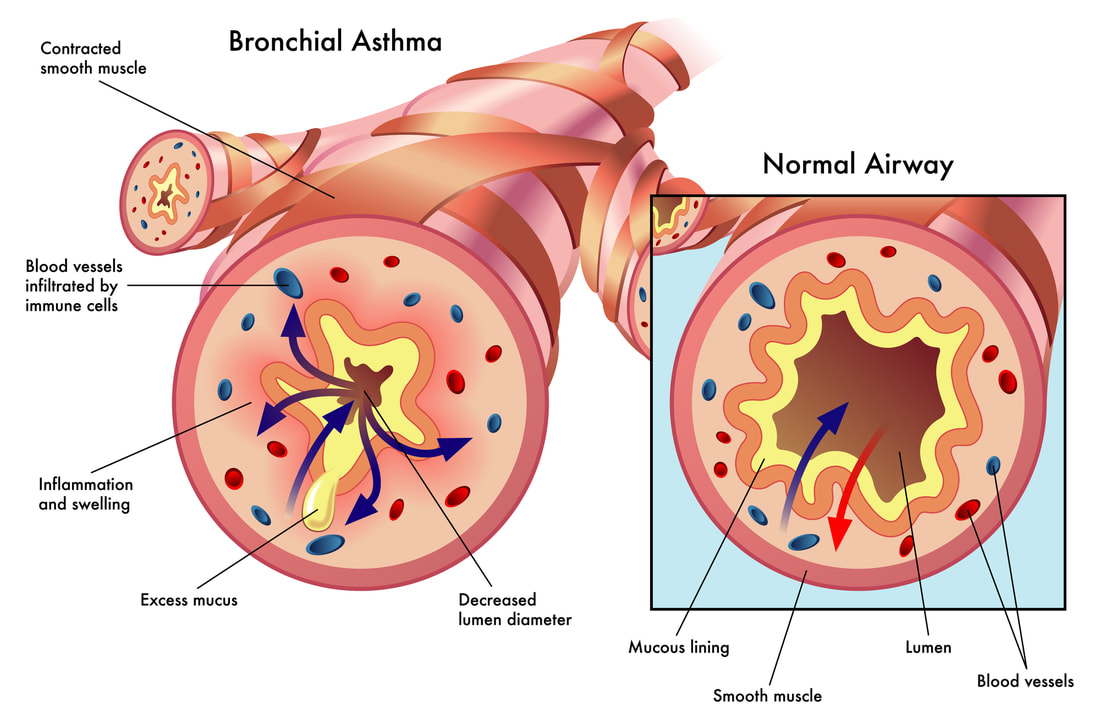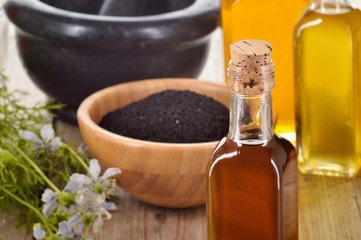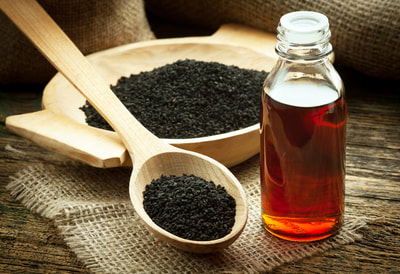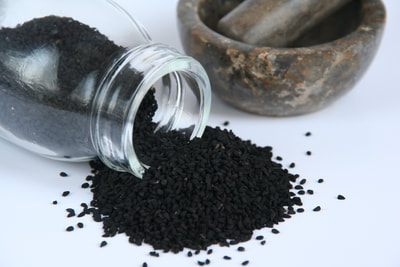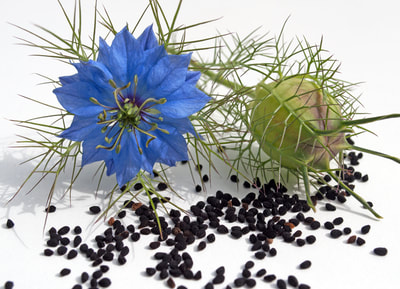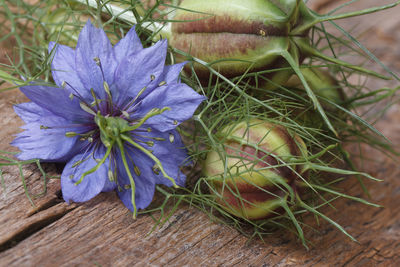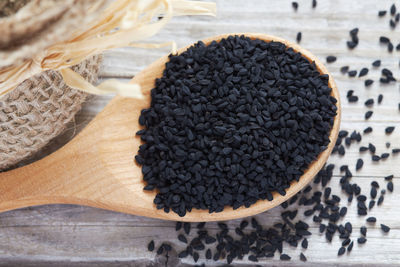- HOME - START HERE
- CONSULTATION SERVICES
- 911 EMERGENCY
- EBOOKS
- Store
- DOSAGES
- HOW TO TAKE
- ANTI-AGING
- CBD AND NIGELLA SATIVA
- RESEARCH SHOWS THAT CANCER RATES WILL RISE DRASTICALLY OVER THE COMING YEARS
- FIBRO CATEGORY
- HERPES CATEGORY
- HIV- Category
- Honey - Category
- Pets
- Top 20 Reasons to use Black Cumin Oil and Capsules
- STROKES CATEGORY
- WEIGHT LOSS CATEGORY
- ANSWER THE QUESTIONS
- Articles
- BLACK SEED OIL IS BETTER THAN TYLENOL FOR ARTHRITIS RELIEF
- Migraines - Headaches - 12 Remedies with Pictures
- My Protocol for Dementia Recovery
- PCOS and Nigella Sativa
- PRIVACY POLICY - GDPR COMPLIANT
- My Team
- About
- Healthy Articles
- Nigella Sativa Online Courses - Part 1
- Childhood Epilepsy
- Natural Diuretics
- Healing Effect on Sarcoidosis
- Nigella Sativa Respiratory Illness
- Cardiovascular Disease
- Depression and COVID19
- 12
- How to Use Nigella Sativa
- How Contagious is Leprosy
- Supporting Human Health - The Immunomodulator
- Nigella Sativa Cancer Ebook
- OK, I am a Muslim - Now What?
- Everything You Ever Wanted to Know About Black Seeds
- Islam Cancer Ebook
- DONATION
- Nigella sativa is an safe alternative Non-Hodgkin’s treatment option
- RESEARCH ON WHY YOU SHOULD HEAT NIGELLA SATIVA SEEDS
- Black Seed Cuisine Ebook
- IS THERE A CURE FOR LUPUS - NATURAL SOLUTIONS
- Black Seed Oil
- TURMERIC DETOX AND MORE
- MASTERS OF HEALING
- PAYMENT RECEIVED
- Non-clickable Page
- IRRITABLE BOWEL SYNDROME - NATURAL SOLUTIONS
- MY CANCER COLLECTION
- CONTACT
WHY RESEARCH EXPERTS PREFER TO USE NIGELLA SATIVA IN ASTHMA TREATMENT
WRITTEN BY DR. NITA SHARMA DAS - SEE ALL OF HER ARTICLES HERE
THIS ARTICLE IS COPYRIGHTED FOR NIGELLA--SATIVA.COM. ALL RIGHTS RESERVED. THIS ARTICLE CONTAINS AFFILIATE LINKS I RECOMMEND. PLEASE SEE OUR DISCLOSURE POLICY.
THIS ARTICLE IS COPYRIGHTED FOR NIGELLA--SATIVA.COM. ALL RIGHTS RESERVED. THIS ARTICLE CONTAINS AFFILIATE LINKS I RECOMMEND. PLEASE SEE OUR DISCLOSURE POLICY.
Overview
The term 'asthma' is derived from a Greek word, meaning short of breathing. Sir William Osler, one of the founders of John Hopkins Medical School was the first to describe asthma in his medical textbook 'Principles and Practice of Medicine' in 1892. [1]
The disease highly affects the quality of life of an individual and the prevalence of asthma is increasing day by day due to excessive environmental pollution which is carrying asthma-triggering allergens.
According to World Health Organization, 235 million people worldwide are suffering from asthma and a major reason for death, specifically for elderly patients. Early diagnosis and proper treatment can provide better prognosis and decrease the mortality rate.
But one of the primary cause of 338,000 deaths due to asthma attacks in 2015 is unaffordability towards medication for middle and lower middle class, patient non-compliance due to the difficulty to take inhalation therapy, complexity in dosage formulation, and adverse effects burden etc. [2,3]
Integration of alternative medicines in asthma treatment proves to be a key measure of successful asthma control. National Asthma Campaign survey report showed that 60% of moderately affected asthma patients and 70% of severely affected asthma patients use alternative therapy. Herbal medicines are one of the most acceptable asthma therapeutic agents for both children and adult population. [4]
The term 'asthma' is derived from a Greek word, meaning short of breathing. Sir William Osler, one of the founders of John Hopkins Medical School was the first to describe asthma in his medical textbook 'Principles and Practice of Medicine' in 1892. [1]
The disease highly affects the quality of life of an individual and the prevalence of asthma is increasing day by day due to excessive environmental pollution which is carrying asthma-triggering allergens.
According to World Health Organization, 235 million people worldwide are suffering from asthma and a major reason for death, specifically for elderly patients. Early diagnosis and proper treatment can provide better prognosis and decrease the mortality rate.
But one of the primary cause of 338,000 deaths due to asthma attacks in 2015 is unaffordability towards medication for middle and lower middle class, patient non-compliance due to the difficulty to take inhalation therapy, complexity in dosage formulation, and adverse effects burden etc. [2,3]
Integration of alternative medicines in asthma treatment proves to be a key measure of successful asthma control. National Asthma Campaign survey report showed that 60% of moderately affected asthma patients and 70% of severely affected asthma patients use alternative therapy. Herbal medicines are one of the most acceptable asthma therapeutic agents for both children and adult population. [4]
|
Nigella sativa as a Herbal Alternative Medicine in Asthma
Asthma patients normally suffer with wheezing, shortness of breathing, tightness in chest, coughing etc, but the intensity of the symptom varies from person to person. Environmental factors also alter the symptomatic intensity of symptoms, like exposure to cold and may worsen during the spring when pollen is in the air. |
The primary aim of any treatment is to control these symptoms and decrease the recurrence of an asthmatic attack.
Nigella sativa is one of the oldest herbal treatments know to man and was used by our ancestors. Nigella sativa seed has several regional names like black seeds, black cumin, kalonji and haba - al barakah.
For more than 4000 years Nigella sativa has been recognized for its anti-asthma effect due to its ability to impede phlegm and protect against shortness of breathing. [3]
Nigella sativa is one of the oldest herbal treatments know to man and was used by our ancestors. Nigella sativa seed has several regional names like black seeds, black cumin, kalonji and haba - al barakah.
For more than 4000 years Nigella sativa has been recognized for its anti-asthma effect due to its ability to impede phlegm and protect against shortness of breathing. [3]
Favorable mechanism of action of Nigella sativa against asthma
The prescribed conventional medications follow several mechanisms of actions, such as they are bronchodilator and diminish allergen-induced mast cell activation. Mast cell activation leads to an inflammatory condition in airways by increasing the inflammatory factors like eosinophilia, total serum IgE and fractional exhaled nitric oxide (FeNO), and INF-gamma cytokine levels.
Nigella sativa has similar effects like conventional anti-asthmatic medications, including it acts as a bronchodilator and also reduces different biomarkers like eosinophilia, IgE, FeNO), INF-gamma cytokine levels in blood serum.
Thus, controlling these biomarkers by using Nigella sativa can provide bronchodilation, anti-histaminic effect, lung functionality improvement, anti-leukotrienes, spasmolytic, anti-inflammatory, calcium antagonist and immunomodulatory effects. [3]
This can give anti-asthmatic effect and reduce frequent recurrence of asthma attacks in exposure to an allergen.
The prescribed conventional medications follow several mechanisms of actions, such as they are bronchodilator and diminish allergen-induced mast cell activation. Mast cell activation leads to an inflammatory condition in airways by increasing the inflammatory factors like eosinophilia, total serum IgE and fractional exhaled nitric oxide (FeNO), and INF-gamma cytokine levels.
Nigella sativa has similar effects like conventional anti-asthmatic medications, including it acts as a bronchodilator and also reduces different biomarkers like eosinophilia, IgE, FeNO), INF-gamma cytokine levels in blood serum.
Thus, controlling these biomarkers by using Nigella sativa can provide bronchodilation, anti-histaminic effect, lung functionality improvement, anti-leukotrienes, spasmolytic, anti-inflammatory, calcium antagonist and immunomodulatory effects. [3]
This can give anti-asthmatic effect and reduce frequent recurrence of asthma attacks in exposure to an allergen.
Why research experts prefer to use Nigella sativa in asthma treatment?
Several Animal research and cellular level investigations, as well as human studies, were conducted to check the actual efficacy of Nigella sativa against asthma.
These study results showed that Nigella sativa and its active constituents provide similar types of clinical benefits like other pharmacological agents.
Animal study and laboratory-based research reported Nigella sativa and its active constituents like thymoquinone, α-hederin and nigellone to possess anti-asthmatic effects because of their anti-histaminic, broncho-relaxing and bronchodilatory, anti-inflammatory and immunomodulatory properties.
These combined positive effects can alter pathophysiology involved in asthma affected subjects.
Randomized double-blind human study results showed that use of Nigella sativa in treating asthma not only corrects the biomarkers alterations due to bronchial inflammation, and mast cells activation but also improves the score of the Asthma Control Test (ACT) and Pulmonary function test (PFT).
A clinical trial conducted in 2015 concluded that Nigella sativa with dosing of 500 mg twice daily for 4 weeks can improve asthma. [5]
The bronchodilatory effect of Nigella sativa starts within 30 minutes as similar as salbutamol (most commonly prescribed medications for acute asthma). [6]
A human trial result showed that Nigella sativa has a potential to control exacerbation in asthma patients and thus inhalation of Nigella sativa containing formulation can be a useful therapeutic measure for managing the asthma attacks. [7]
An appropriate dose of Nigella sativa can also provide prophylactic effect against asthma.
Additionally, the combination of this herbal product with other conventional anti-asthma therapies including oral and/or inhaler corticosteroid, oral and/or inhaler beta-agonists, and oral theophylline can reduce the dose of these synthetic medications. [8]
Therefore, using Nigella sativa supplement is a cost-effective choice which can as well reduce the synthetic medication-related side effects.
Several Animal research and cellular level investigations, as well as human studies, were conducted to check the actual efficacy of Nigella sativa against asthma.
These study results showed that Nigella sativa and its active constituents provide similar types of clinical benefits like other pharmacological agents.
Animal study and laboratory-based research reported Nigella sativa and its active constituents like thymoquinone, α-hederin and nigellone to possess anti-asthmatic effects because of their anti-histaminic, broncho-relaxing and bronchodilatory, anti-inflammatory and immunomodulatory properties.
These combined positive effects can alter pathophysiology involved in asthma affected subjects.
Randomized double-blind human study results showed that use of Nigella sativa in treating asthma not only corrects the biomarkers alterations due to bronchial inflammation, and mast cells activation but also improves the score of the Asthma Control Test (ACT) and Pulmonary function test (PFT).
A clinical trial conducted in 2015 concluded that Nigella sativa with dosing of 500 mg twice daily for 4 weeks can improve asthma. [5]
The bronchodilatory effect of Nigella sativa starts within 30 minutes as similar as salbutamol (most commonly prescribed medications for acute asthma). [6]
A human trial result showed that Nigella sativa has a potential to control exacerbation in asthma patients and thus inhalation of Nigella sativa containing formulation can be a useful therapeutic measure for managing the asthma attacks. [7]
An appropriate dose of Nigella sativa can also provide prophylactic effect against asthma.
Additionally, the combination of this herbal product with other conventional anti-asthma therapies including oral and/or inhaler corticosteroid, oral and/or inhaler beta-agonists, and oral theophylline can reduce the dose of these synthetic medications. [8]
Therefore, using Nigella sativa supplement is a cost-effective choice which can as well reduce the synthetic medication-related side effects.
Direction to use of Nigella sativa in asthma patients
Dosing
It has been established from clinical trial data that 500 mg Nigella sativa supplement two times a day for 4 weeks can help to control asthma. [5]
Moreover, some experts suggested for a gradual dose elevation. At the start of the therapy, take a half teaspoon of Nigella sativa oil once a day for 7 days.
After a week, take half teaspoon of Nigella sativa oil twice a day for next 7 days. Likewise, the dose can be raised up to 3 teaspoons per day. The dose selection is based on the response of the patient. [9]
Dosage forms
There are a variety of dosage forms of Nigella sativa supplement that are available in the market, including Nigella sativa oil, Nigella sativa oil encapsulated in the capsule formation.
However, raw Nigella sativa seeds can also be taken as a herbal remedy, but almost 2 to 3 gm of Nigella sativa seeds are required to get the desired effect. This is quite a high quantity to take as a medicine. [10]
Dosing
It has been established from clinical trial data that 500 mg Nigella sativa supplement two times a day for 4 weeks can help to control asthma. [5]
Moreover, some experts suggested for a gradual dose elevation. At the start of the therapy, take a half teaspoon of Nigella sativa oil once a day for 7 days.
After a week, take half teaspoon of Nigella sativa oil twice a day for next 7 days. Likewise, the dose can be raised up to 3 teaspoons per day. The dose selection is based on the response of the patient. [9]
Dosage forms
There are a variety of dosage forms of Nigella sativa supplement that are available in the market, including Nigella sativa oil, Nigella sativa oil encapsulated in the capsule formation.
However, raw Nigella sativa seeds can also be taken as a herbal remedy, but almost 2 to 3 gm of Nigella sativa seeds are required to get the desired effect. This is quite a high quantity to take as a medicine. [10]
Nigella sativa recipe for asthma patient
Herbal tea prepared with Nigella sativa, ginger and lemon are one of the best to treat asthma. Organic honey can be added to this tea, this will not only provide a sweet taste, but also increases the health benefits. [11]
Herbal tea prepared with Nigella sativa, ginger and lemon are one of the best to treat asthma. Organic honey can be added to this tea, this will not only provide a sweet taste, but also increases the health benefits. [11]
Which Black Seed Oil Do I Use?
I highly recommend this oil. This oil isl and is the best oil in the whole world. I am so positive you will love my favorite oil too.
I highly recommend this oil. This oil isl and is the best oil in the whole world. I am so positive you will love my favorite oil too.
References
- Stephen T Holgate. A Brief History of Asthma and Its Mechanisms to Modern Concepts of Disease Pathogenesis. Allergy Asthma Immunol Res. 2010 Jul; 2(3): 165–171. Published online 2010 May 6. doi: 10.4168/aair.2010.2.3.165. Online available at https://www.ncbi.nlm.nih.gov/pmc/articles/PMC2892047/
- 10 facts on asthma. World Health Organization, Updated August 2017. Online available at http://www.who.int/features/factfiles/asthma/en/
- AbdulrahmanKoshak, EmadKoshak, MichaelHeinrich, Medicinal benefits of Nigella sativa in bronchial asthma: A literature review. Saudi Pharmaceutical Journal Volume 25, Issue 8, December 2017, Pages 1130-1136. https://doi.org/10.1016/j.jsps.2017.07.002. Online available at https://www.sciencedirect.com/science/article/pii/S1319016417301391
- A Huntley, E Ernst. Herbal medicines for asthma: a systematic review. Online available at http://thorax.bmj.com/content/55/11/925
- Koshak A, Wei L, Koshak E, Wali S, Alamoudi O, Demerdash A, Qutub M, Pushparaj PN, Heinrich M. Nigella sativa Supplementation Improves Asthma Control and Biomarkers: A Randomized, Double-Blind, Placebo-Controlled Trial. Phytother Res. 2017 Mar;31(3):403-409. doi: 10.1002/ptr.5761. Epub 2017 Jan 17. Online available at https://www.ncbi.nlm.nih.gov/pubmed/28093815
- Boskabady MH, Mohsenpoor N, Takaloo L. Antiasthmatic effect of Nigella sativa in airways of asthmatic patients. Phytomedicine. 2010 Aug;17(10):707-13. doi: 10.1016/j.phymed.2010.01.002. Epub 2010 Feb 10. Online available at https://www.ncbi.nlm.nih.gov/pubmed/20149611
- Salem AM, Bamosa AO, Qutub HO, Gupta RK, Badar A, Elnour A, Afzal MN. Effect of Nigella sativa supplementation on lung function and inflammatory mediatorsin partly controlled asthma: a randomized controlled trial. Ann Saudi Med. 2017 Jan-Feb;37(1):64-71. doi: 10.5144/0256-4947.2017.64. Online available at https://www.ncbi.nlm.nih.gov/pubmed/28151459
- Boskabady MH, Javan H, Sajady M, Rakhshandeh H. The possible prophylactic effect of Nigella sativa seed extract in asthmatic patients. Fundam Clin Pharmacol. 2007 Oct;21(5):559-66. Online available at https://www.ncbi.nlm.nih.gov/pubmed/17868210
- Asthma and Black seed Oil. Online available at https://theblessedseed.com/asthma-black-seed-oil/
- Nigella sativa. Online available at https://examine.com/supplements/nigella-sativa/
- Herbal medicines for asthma. Nigella sativa . Online available at https://healthunlocked.com/asthmauk/posts/132170464/herbal-medicines-for-asthma.-nigella-sativa
ALSO READ MY SUGGESTIONS
|
COME JOIN MY MEMBERSHIP GROUP - DO YOU MISS ME? THE COST IS $9.95 PER MONTH. LEARN THE DEEP SECRETS OF BEING WELL.
PAYMENT LINK HERE |
STORE TESTIMONY CONTACT EBOOKS ABOUT PAGE PRIVATE POLICYAmazon Affiliate Disclosure
https://www.nigellasativacenter.com is a participant in the Amazon Services LLC Associates Program, an affiliate advertising program designed to provide a means for website owners to earn advertising fees by advertising and linking to amazon(.com, .co.uk, .ca etc) and any other website that may be affiliated with Amazon Service LLC Associates Program. “Amazon and the Amazon logo are trademarks of Amazon.com, Inc. or its affiliates.” Please note I am also an affiliate for Mountain Rose Herbs, , Shareasale and More. Please see our full disclosure here: Disclaimer: The information on this page and on this website has not been evaluated by the FDA. We do not diagnose, treat, cure or prevent illness or disease - instead, we try to help people learn how to do so themselves. Anyone who believes they have a serious medical condition or health issue should seek diagnoses from a qualified medical professional before making any decisions on how to best address their health. Furthermore, anyone contemplating using any products or information on this website must accept such use as experimental and voluntary. No claims are made regarding the therapeutic use of the products or information on this website and all products featured or sold on this website must be considered nutritional supplements only. -
Copyright Protected - Nigella Sativa.com - 2022-2025 - All Rights Reserved - Any infringe on our copyright will be prosecuted to the fullest extent of the law.
|
OWNER: SAMANTHA DAVIS
WEBSITE: BASED ON EVIDENCE ADDRESS: PO BOX 437, ZARGA, JORDAN 13110 PHONE: +962-53923471 HOURS: 5PM - 12AM - NY;TIME EMAIL: naturalliving [email protected] CONSULTATION FEES 1 STOP CENTER IS BASED ON ALL MODALITIES OF HEALING, NOT JUST NIGELLA SATIVA |
- HOME - START HERE
- CONSULTATION SERVICES
- 911 EMERGENCY
- EBOOKS
- Store
- DOSAGES
- HOW TO TAKE
- ANTI-AGING
- CBD AND NIGELLA SATIVA
- RESEARCH SHOWS THAT CANCER RATES WILL RISE DRASTICALLY OVER THE COMING YEARS
- FIBRO CATEGORY
- HERPES CATEGORY
- HIV- Category
- Honey - Category
- Pets
- Top 20 Reasons to use Black Cumin Oil and Capsules
- STROKES CATEGORY
- WEIGHT LOSS CATEGORY
- ANSWER THE QUESTIONS
- Articles
- BLACK SEED OIL IS BETTER THAN TYLENOL FOR ARTHRITIS RELIEF
- Migraines - Headaches - 12 Remedies with Pictures
- My Protocol for Dementia Recovery
- PCOS and Nigella Sativa
- PRIVACY POLICY - GDPR COMPLIANT
- My Team
- About
- Healthy Articles
- Nigella Sativa Online Courses - Part 1
- Childhood Epilepsy
- Natural Diuretics
- Healing Effect on Sarcoidosis
- Nigella Sativa Respiratory Illness
- Cardiovascular Disease
- Depression and COVID19
- 12
- How to Use Nigella Sativa
- How Contagious is Leprosy
- Supporting Human Health - The Immunomodulator
- Nigella Sativa Cancer Ebook
- OK, I am a Muslim - Now What?
- Everything You Ever Wanted to Know About Black Seeds
- Islam Cancer Ebook
- DONATION
- Nigella sativa is an safe alternative Non-Hodgkin’s treatment option
- RESEARCH ON WHY YOU SHOULD HEAT NIGELLA SATIVA SEEDS
- Black Seed Cuisine Ebook
- IS THERE A CURE FOR LUPUS - NATURAL SOLUTIONS
- Black Seed Oil
- TURMERIC DETOX AND MORE
- MASTERS OF HEALING
- PAYMENT RECEIVED
- Non-clickable Page
- IRRITABLE BOWEL SYNDROME - NATURAL SOLUTIONS
- MY CANCER COLLECTION
- CONTACT

